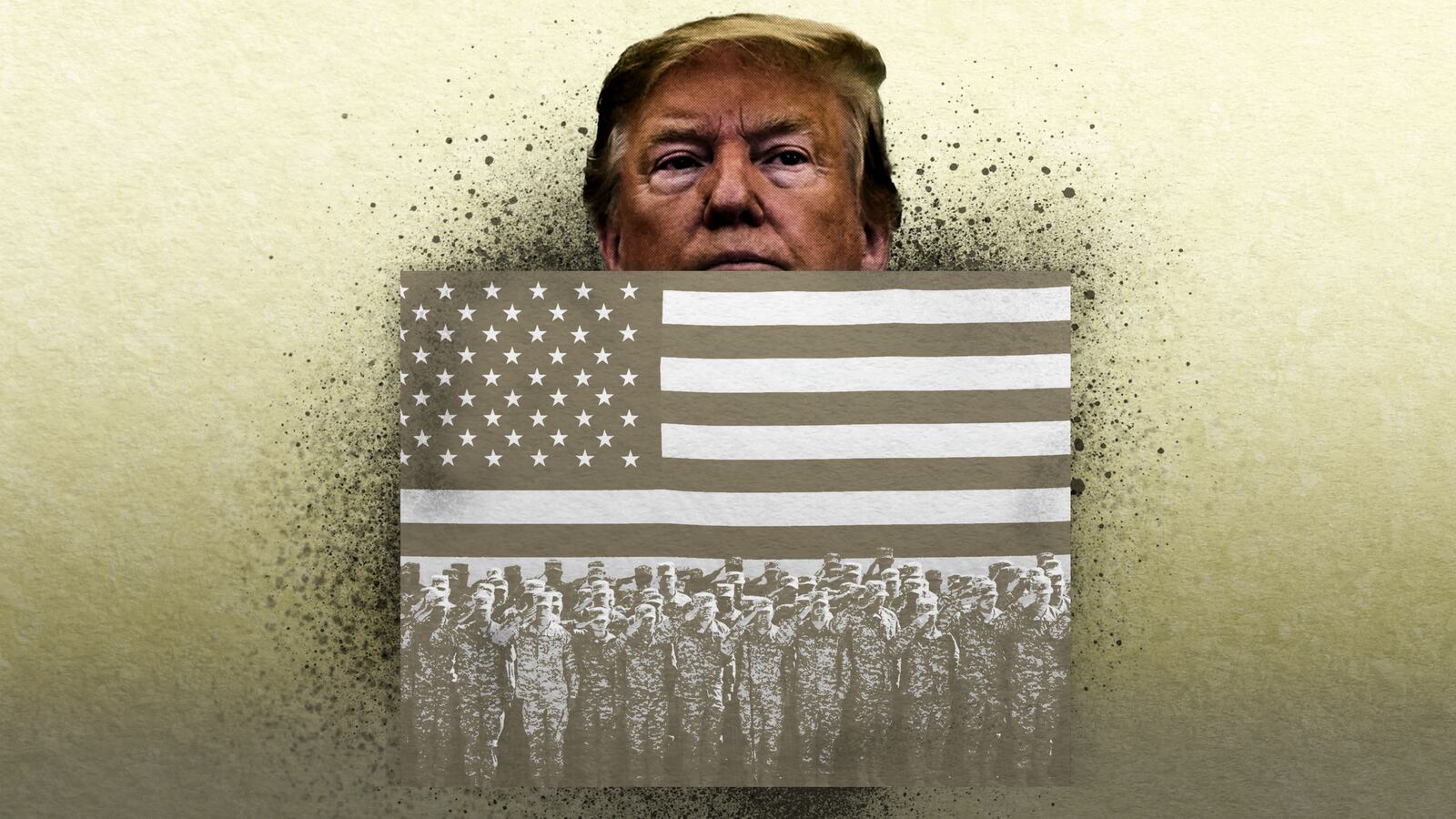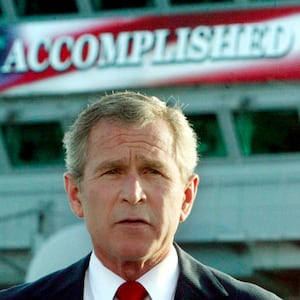Twenty years after the United States invaded Iraq, it is worth asking whether it was the right thing to do. As someone who was passively in favor of it (I was a loyal conservative Republican, but I wasn’t a writer back then), I’m now solidly in the “no” camp for one reason: The once (and future?) presidency of Donald Trump.
I realize this sounds both partisan and crazy. Instead of questioning if it was the right thing to do, shouldn’t the question be, “Did Saddam Hussein need to be toppled?” Shouldn’t the question be, “Did Saddam have weapons of mass destruction (WMDs)—or the ability to quickly reconstitute them?” Shouldn’t the question be, “Were the Iraqi people better off being liberated from this monster?” Shouldn’t the question be, “Is our geopolitical situation more secure?”
If we evaluated the invasion using those criteria, it could conceivably be considered the right decision—even in light of the dysfunctional manner in which it played out (ultimately requiring a troop surge in 2007 to provide security and prevent a humiliating withdrawal).
Remember, George W. Bush made this decision in 2003, after the 9/11 attacks. Everyone, including Bill Clinton, Al Gore, and even Joe Biden, had been making noise about toppling the “butcher of Baghdad.” Indeed, Saddam had previously used WMDs against his own people. And our most recent foray into Iraq (Operation Desert Storm) had been a walk in the park. In the heady days of 2003, it was easy to rationalize that this decision was morally correct, strategically sound, and likely to go smoothly.
It didn’t go well, and the fallout was worse than expected. And I’m not just talking about the insurgency. Not finding any WMDs resulted in faulty intel being held up as additional evidence that the so-called “experts” and elites were either incompetent, evil, or both. There is a straight line from this belief to today’s animosity directed at our intel agencies (i.e., the “deep state”).
A straight line can also be drawn from that moment to the election of Donald Trump to the ongoing hatred of Dr. Anthony Fauci (who, let’s be honest, has invited some of the opprobrium).
Bush’s decision two decades ago generated negative reverberations that carried into our modern political world. And this, in my opinion, is the ultimate indictment of Bush’s decision.
I mean, shouldn’t we judge the wisdom of the invasion based on how things actually turned out?
But why revisit the past? Counterfactuals and alternative histories can be a waste of time, but they can also serve as a cautionary tale to help avoid future mistakes. Our current political world—a polarized America that is teeming with conspiracy theories and authoritarian tendencies—would be utterly different (better) had George W. Bush decided to skip Iraq and focus instead on killing Osama bin Laden (the guy who actually planned the 9/11 attacks).
Bush’s war in Iraq contributed to discrediting neoconservatism, mainstream conservatism, and, yes, establishment Republicanism. It led to Barack Obama’s election (he used Iraq to defeat Hillary Clinton) in 2008, a development that helped radicalize the American right and, ultimately, fueled the rise of Trump. (Obama’s mockery of Trump arguably baited him into running for president.)
As a Republican primary candidate in 2016, Trump (who supported the invasion of Iraq) weaponized the Iraq war against Jeb Bush and the entire Republican establishment. He continued to use this tactic in his presidency, when he called the decision “the single worst decision ever made.”
Was he right? Trump had a point. The invasion gave us Trump.
At this point, you might think that I am suffering from Trump Derangement Syndrome. While I agree this condition afflicts millions of Americans (both pro and anti-Trump), there’s no shame in accurately diagnosing the situation. And if you really want to put America First, the fact is this: The Iraqi regime posed a less serious threat to our way of life.
Keep in mind that Donald Trump literally tried to incite a mob to overturn a free and fair election. Keep in mind that Trump literally tried to stop the peaceful transfer of power. Keep in mind that Trump literally called for the termination of the Constitution. Along the way, he normalized all sorts of crazy, illiberal behavior, and he radicalized a good chunk of the American public.
Trump even praised Saddam Hussein. In 2016, after saying Hussein was “a bad guy,” Trump added, “But one thing about him: He killed terrorists.” He restated: “Saddam Hussein understood and he killed terrorists.”
That chilling spoken support is yet another reminder that Trump’s past and future presidency poses a greater threat to America and liberal democracy than the nation of Iraq ever did.
To paraphrase something Trump recently said, “ [T]he greatest threat to Western Civilization was not Iraq. It was probably, more than anything else, ourselves…” Once again, he’s not wrong.







